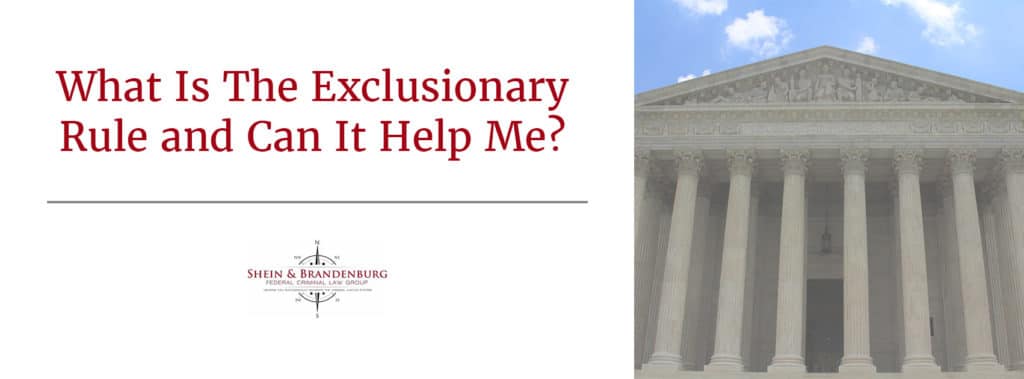The Fourth Amendment of the United States Constitution was written to include the exclusionary rule, which protects individual from unreasonable or illegal searches and seizures. The exclusionary rule is a type of remedy used by courts of law when someone violates a person’s Miranda rights. The rule was created with the intention to prevent law enforcement and other government actors from abusing a person’s constitutional rights. In accordance with the exclusionary rule, courts suppress evidence that is obtained in these types of ways. Suppression results in evidence being treated as inadmissible for many purposes in a person’s eventual trial. If a judge suppresses evidence that is critical for a conviction, prosecution might be required to dismiss charges. In some circumstances, the exclusionary rule does not apply. Evidence includes a variety of materials including audio or video recordings, digital evidence, photographs, physical objects, scientific findings, witness statements, and witness testimony.
Common Reasons Why Searches and Seizures are Considered Unlawful
The Fourth Amendment recognizes certain exceptions to the requirements when warrantless searches and seizures are performed including situations when law enforcement has probable cause to arrest a person. A search and seizure can be unlawful for any number of reasons, but some of the most common reasons include the following:
- Areas Not Listed in Search Warrants: When law enforcement searches an area that is not listed in a warrant, evidence from these searches can often be suppressed.
- Searches Conducted Without Legal Justification: When searches are conducted by law enforcement without legal justification, resulting evidence can frequently be seized.
Limitations of the Exclusionary Rule
There are some recognized in limits in how the exclusionary rule can be applied. The Supreme Court established these limits by noting that a defendant is able to only seek suppression of evidence that is obtained in violation of that person’s own rights. As a result, evidence about a defendant that is obtained in a warrantless search of another person can not be suppressed. Another limitation of the exclusionary rule is that even if evidence meets this category, the evidence still might be admitted into a court of law if the evidence could have been obtained through lawful means. Another way in which exclusionary evidence can still be admitted is if law enforcement officers had a good faith belief that their behavior was lawful at the time that the evidence was obtained. These good faith cases require courts of law to analyze a person’s state of mind. The exclusionary rule also does not apply in civil cases, grand jury proceedings, or parole revocation hearings.
Obtain the Assistance of a Skilled Attorney
The exclusionary rule is just one of the many complicated issues that requires the assistance of a skilled attorney. If you have questions about this process, do not hesitate to contact a skilled attorney at Federal Criminal Law Center for a free case evaluation.


